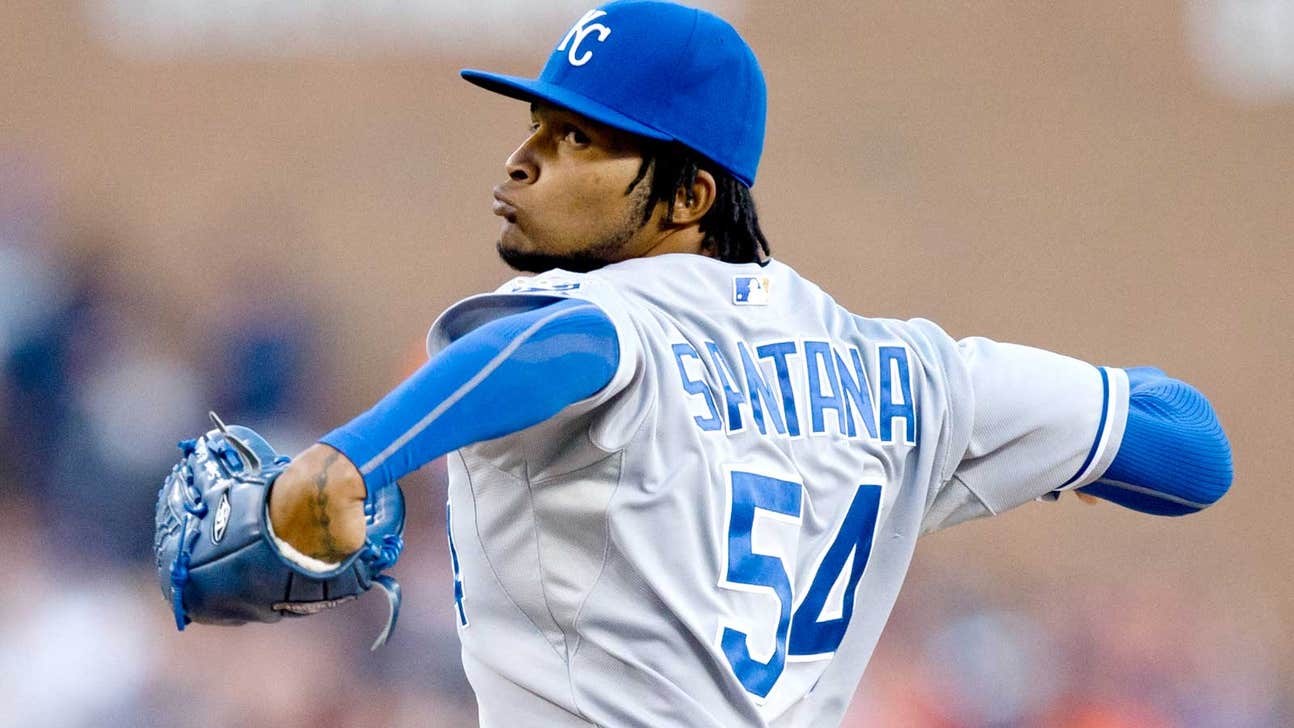
Compensation free agents may hold out until after June draft

Might we soon see baseball's version of the Four Corners offense?
The answer is yes, according to the representatives for the three remaining compensation free agents.
Bean Stringfellow, the agent for right-hander Ervin Santana, said Sunday that the pitcher would consider holding out until after the amateur draft in early June if he does not receive an acceptable offer.
Scott Boras, the agent for shortstop Stephen Drew and first baseman-designated hitter Kendrys Morales, also suggested that his clients might not sign until after the draft, when compensation no longer would apply.
Even delaying new deals until after Opening Day would benefit the players. An eligible free agent cannot receive a qualifying offer unless he is with his team for an entire season, according to the collective-bargaining agreement.
Outfielder Nelson Cruz, who agreed on Saturday to a one-year, $8 million free-agent contract with the Orioles, was not willing to wait until after Opening Day, and again will be eligible to receive a qualifying offer next offseason.
The bigger question, though, is whether any of the remaining comp free agents would sit out until after the draft, preventing their previous teams from receiving picks.
The Royals, Red Sox and Mariners made $14.1 million qualifying offers to Santana, Drew and Morales, respectively. All three rejected the offers, leaving them subject to draft-pick compensation.
Waiting until June "is certainly something we've talked about," Stringfellow said. "Let's put it this way -- the idea of Ervin Santana signing a one-year deal at the dollars that Nelson Cruz got, I can't in any way, shape or form comprehend that for Ervin.
"Once you get past the draft, a lot of teams will be in play with the expanded playoffs. You wouldn't have a draft pick attached. And how many teams are in need of pitching?
"Ervin Santana is a front-line starting pitcher. He will be compensated as such. Whatever it takes to make that happen, we will make it happen, simple as that."
The Orioles, Rangers, Rockies and Mariners are among the teams that have expressed interest in Santana. Stringfellow said that it is entirely possible that the pitcher still could receive an acceptable offer before June. An interested team might jump; injuries or ineffective performance could spark demand.
The same holds for Drew and Morales, but Boras said that clubs also have incentive to wait until after the draft to sign compensation free agents to multi-year deals.
Boras, estimating the value of the comp picks at $3 million to $4 million each, outlined a potential swing of three selections that could help a club benefit by $9 million to $12 million -- money that could be redirected toward a free agent.
Here's how Boras explained it:
A club first would keep its pick for 2014. The free agent would fill a hole, enabling the club to avoid signing a comp free agent -- and losing a pick -- in '15.
The club then could become eligible for another pick by making the free agent a qualifying offer at the end of his contract, assuming that the system does not change when the current CBA expires after the 2016 season.
Santana, Drew and Morales, all of whom will play this season at age 31, ideally would want deals of three or more years, extending through 2016.
"A road map for this strategy has been figured out," Boras said. "There is a significant advantage under this system for teams to develop a plan to sign premium free-agent players -- the top 6 to 12 percent -- where they can gain draft currency and also improve their team in the current and long-term."
A holdout by one or more of the comp free agents until after the draft also could work to the benefit of the players long-term if the union eventually seeks to alter or abolish the system.
The Royals would not be happy if they lost the pick they expected back for Santana, and the same would go for the Red Sox with Drew and the Mariners with Morales. If select clubs shared the players' discontent, it could help spark change.
Another possibility is that players will become more open to accepting qualifying offers in the future. Twenty-two free agents received offers in the first two years under the current CBA, and all 22 rejected them. Cruz is the first to sign a deal for less than the amount of the qualifying offer.
Adjustments in rules and strategies, however, are subjects for another day.
Three comp free agents are still unsigned. And they may remain unsigned for a good while longer.










